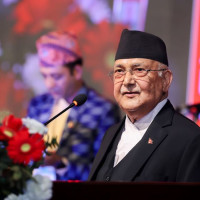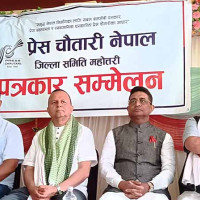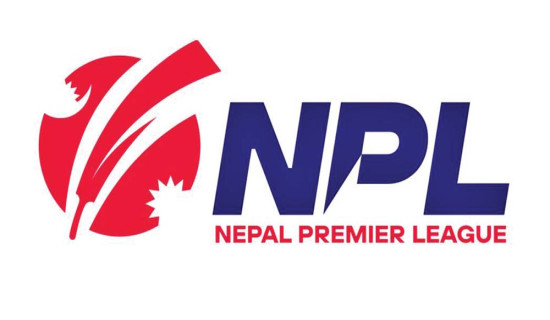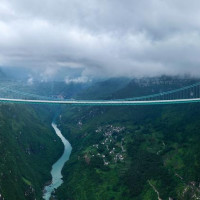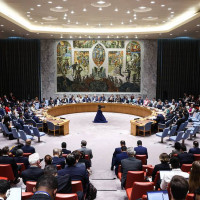- Friday, 22 August 2025
Growing call in NC to hold timely convention
Kathmandu, Dec. 16: Growing discontent among leaders and cadres of the Nepali Congress (NC) has exerted pressure on the party leadership to ensure timely conventions of its sister organisations and the party’s 15th general convention.
Leaders from rival factions, alongside grassroots members, have intensified their campaign to hold conventions in line with the party statute, highlighting the importance of internal democracy and organisational dynamism.
The party’s inability to adhere to timelines set by its own charter has fuelled frustration among members. The delay in initiating the groundwork for local-level conventions, a prerequisite for the general convention, has further complicated matters.
“Timely conventions are essential to keeping the party on the right track,” said Shyam Kumar Ghimire, Chief Whip and a leader of the Nepali Congress.
Speaking about the party’s internal dynamics, Ghimire emphasised the importance of democratic practices within the old grand party. “The Nepali Congress is a democratic party, and everyone has the right to express their opinions. This is a fundamental aspect of democracy, and naturally, it leads to some internal conflicts,” he said.
Ghimire assured that despite the challenges, the party is committed to holding its elections as planned. “The party has already decided to conduct the elections by April 2025, and they will undoubtedly take place. While more issues may arise during this period, all such problems will be resolved to ensure the elections are conducted on time,” he added.
Party President Sher Bahadur Deuba formed a "General Convention Directive Committee" on December 11 to oversee the conventions of 10 different sister organisations of the party, including the Nepal Students Union, Nepal Women's Association, and Nepal Farmers' Federation. The committee, operating under Article 25 (9) of the party’s 2017 statute, is tasked with completing the conventions by the end of April.
These organisations have been functioning with ad hoc committees for years.
The recurring delays in holding conventions have cast doubt on the NC’s commitment to internal democracy. Critics argue that term extensions, allowed under exceptional circumstances in the party charter, have become routine. "We need a predictable system of electing leaders through healthy competition, from the grassroots to the centre like Nepali Congress has always done," said Min Bahadur Bishwakarma, Information and Publicity Department Chief of the Nepali Congress, said.
Despite its shortcomings, the NC has introduced progressive practices, such as electing its general secretaries and vice presidents through direct voting. These reforms led to the rise of younger leaders, such as Gagan Thapa and Bishwa Prakash Sharma, injecting fresh energy into the party. However, the repeated deferrals of conventions undermine these gains, party insiders say.
In a republic like Nepal, where political parties wield significant influence over governance and policymaking, the internal functioning of major parties has far-reaching consequences. Experts note that strengthening intra-party democracy ensures competent leadership and, by extension, a healthier democratic system.
For the NC, which remains the largest party in the House of Representatives, the stakes are especially high. Observers believe that as president Deuba approaches the end of his tenure, he has a unique opportunity to reinforce the party’s democratic practices.
"The Nepali Congress has been relying more on agreements than strictly adhering to the party's statute," said Bishwakarma.
He elaborated on the recent formation of a committee by party president Deuba, comprising three leaders tasked with overseeing the functioning and future elections of sister organisations. “This committee was formed to ensure that elections and organizational operations proceed through consensus. Previously, the inclusion of committee members outside the provisions of the party statute led to chaos, with meetings failing to convene and agreements stalled,” said Bishwakarma.
He highlighted how the burden of managing elections fell solely on the party president, creating significant challenges. “The new committee, with designated members for each sister organisation, will distribute responsibilities more effectively, ensuring smoother operations. This step was necessary to address the delays caused by a lack of consensus,” he added.
Bishwakarma reaffirmed that the elections for the sister organisations would take place by April 2025. “With the committee now in place and its members actively engaged, we are confident that the previous hurdles will be resolved, and the elections will proceed as planned,” he said.
The directive committee, led by key figures such as Jeevan Pariyar for the Nepal Dalit Association and Dr. Prakash Sharan Mahat for the Nepal Women's Association, has been tasked with coordinating ad hoc committees and completing conventions within the stipulated time frame. Whether the NC can meet these commitments remains to be seen, but the growing demands from within the party signal an urgent need for action.




